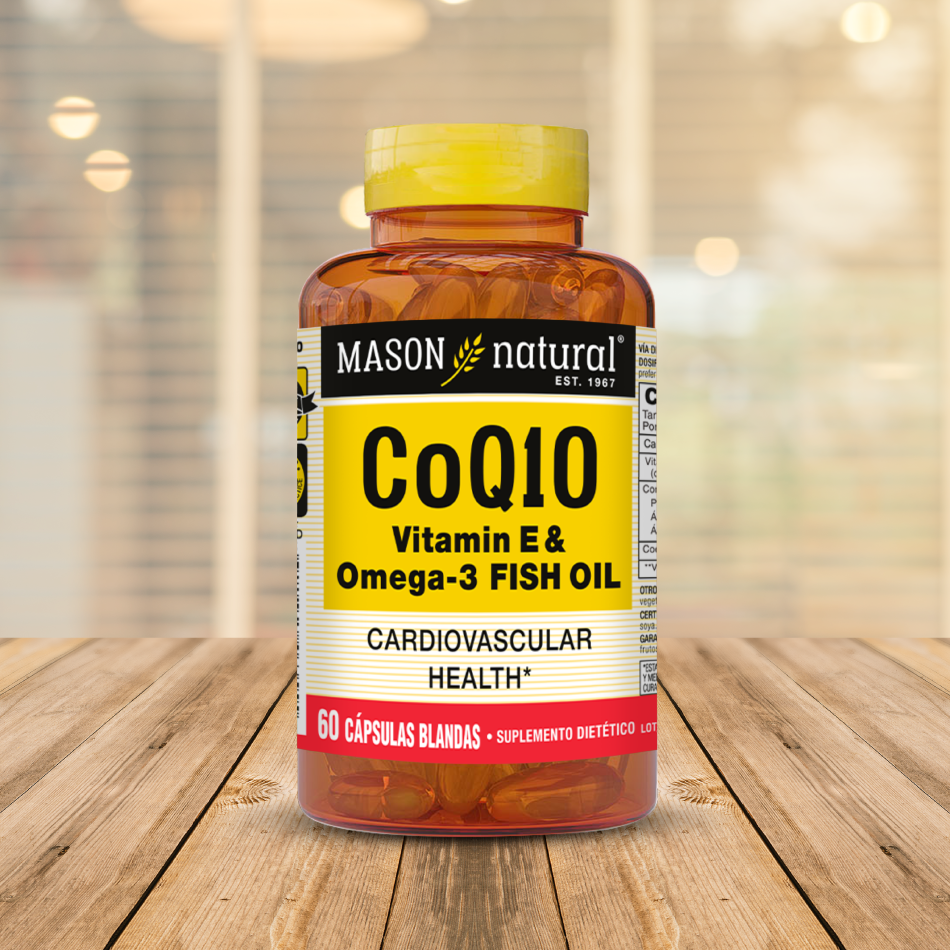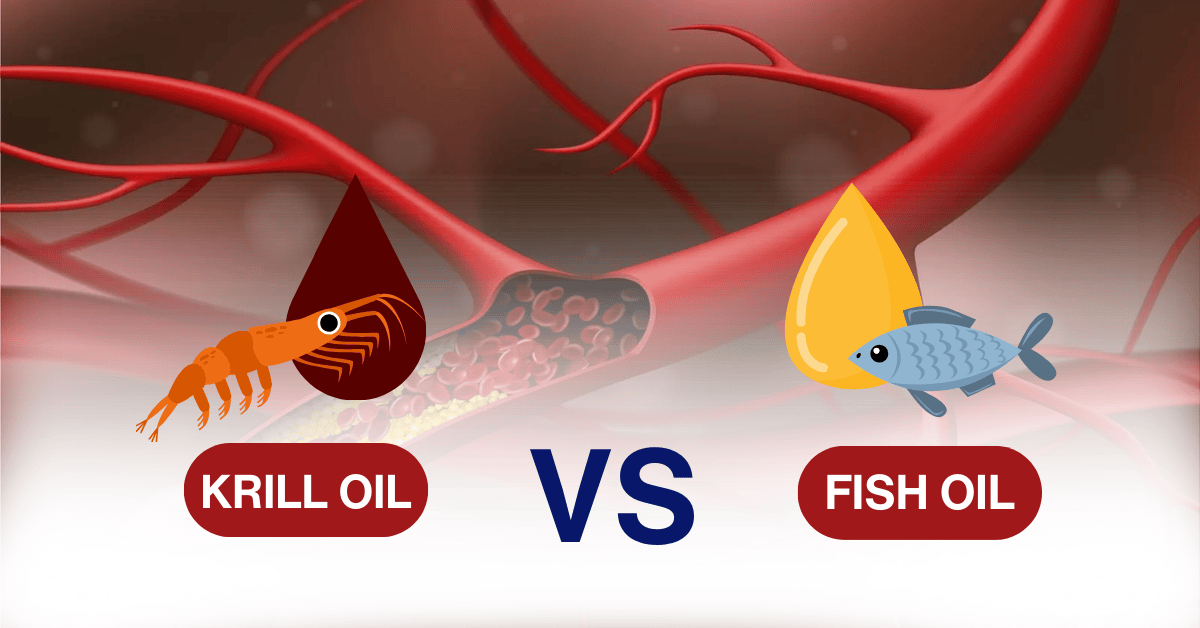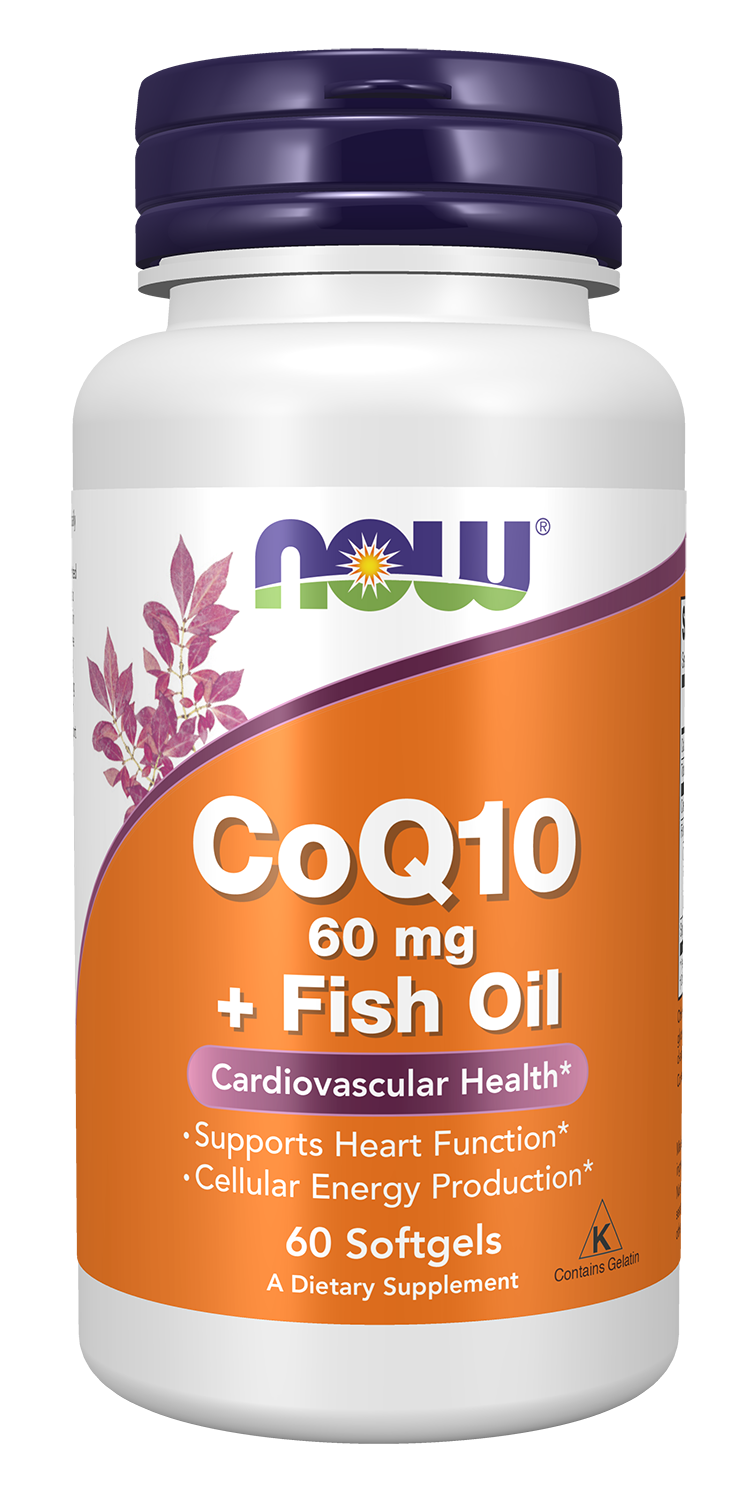Coq10 Vs Fish Oil For Cholesterol

Imagine strolling through a bustling farmers market on a sunny Saturday morning. The air is filled with vibrant colors of fresh produce, the aroma of baked bread, and the chatter of friendly vendors. Among the stalls, you spot a stand dedicated to health supplements, where two bottles stand out: one labeled "CoQ10" with a sunny yellow hue and another filled with golden "Fish Oil" capsules. A friendly debate seems to be brewing among customers, each championing their chosen supplement for maintaining healthy cholesterol levels. Which one is right for you?
For individuals seeking natural ways to manage their cholesterol, both CoQ10 and fish oil are often touted as potential allies. This article explores the scientific evidence behind these supplements, comparing their mechanisms of action, potential benefits, and limitations in the context of cholesterol management. We will delve into the research, offering a balanced perspective to help you make an informed decision about incorporating these supplements into your wellness routine, always in consultation with your healthcare provider.
Understanding Cholesterol and Its Importance
Cholesterol, a waxy substance found in your blood, is essential for building healthy cells. However, having too much cholesterol, especially LDL (low-density lipoprotein) cholesterol, often called "bad" cholesterol, can increase the risk of heart disease. HDL (high-density lipoprotein) cholesterol, known as "good" cholesterol, helps remove LDL cholesterol from your arteries.
Maintaining a healthy balance between LDL and HDL cholesterol is crucial for cardiovascular health. Lifestyle factors, such as diet, exercise, and weight management, play a significant role in influencing cholesterol levels. In addition to lifestyle modifications, some individuals turn to supplements like CoQ10 and fish oil to further support their cholesterol management efforts.
CoQ10: The Cellular Energy Booster
Coenzyme Q10, or CoQ10, is a naturally occurring compound in the body that plays a vital role in cellular energy production. It acts as an antioxidant, protecting cells from damage caused by free radicals. Although the body produces CoQ10, production naturally declines with age, and certain medical conditions and medications can further deplete its levels.
Several studies have explored the potential benefits of CoQ10 supplementation for heart health. While not directly lowering LDL cholesterol in a significant way, some research suggests that CoQ10 may improve blood vessel function and reduce oxidative stress, both of which contribute to cardiovascular health. Individuals taking statin medications (cholesterol-lowering drugs) sometimes experience muscle pain, and CoQ10 has been suggested as a potential way to mitigate these side effects, although the evidence is mixed and requires further investigation.
A 2018 meta-analysis published in the journal Pharmacological Research indicated that CoQ10 supplementation may improve endothelial function (the lining of blood vessels) in individuals with cardiovascular disease. However, the effects on lipid profiles, including LDL and HDL cholesterol, were not statistically significant in most studies.
Potential Benefits of CoQ10:
- May improve blood vessel function
- Acts as an antioxidant, protecting cells from damage
- Potentially reduces muscle pain associated with statin use (evidence still emerging)
Fish Oil: The Omega-3 Powerhouse
Fish oil is a rich source of omega-3 fatty acids, primarily EPA (eicosapentaenoic acid) and DHA (docosahexaenoic acid). These essential fats are known for their anti-inflammatory properties and potential benefits for cardiovascular health. Unlike CoQ10, fish oil has been shown in some studies to directly impact lipid profiles.
Research suggests that fish oil supplementation can lower triglyceride levels, a type of fat in the blood that contributes to heart disease. While the effect on LDL cholesterol is less pronounced, some studies have shown a modest reduction in LDL cholesterol and an increase in HDL cholesterol with fish oil consumption. The American Heart Association recommends consuming fish rich in omega-3 fatty acids at least twice a week for heart health.
A study published in the Journal of the American Heart Association found that higher doses of EPA-only fish oil significantly reduced the risk of cardiovascular events in patients with elevated triglycerides. The REDUCE-IT trial specifically used a prescription-strength EPA-only fish oil, highlighting that the form and dosage of omega-3s can influence their effectiveness.
Potential Benefits of Fish Oil:
- Lowers triglyceride levels
- May modestly reduce LDL cholesterol and increase HDL cholesterol
- Possesses anti-inflammatory properties
CoQ10 vs. Fish Oil: A Comparative Look
While both CoQ10 and fish oil offer potential benefits for cardiovascular health, they operate through different mechanisms. CoQ10 primarily focuses on cellular energy production and antioxidant protection, indirectly supporting heart health. Fish oil, on the other hand, directly influences lipid profiles and exerts anti-inflammatory effects.
When considering which supplement is more suitable for cholesterol management, it's essential to consider your individual needs and health status. Individuals with high triglycerides may benefit more from fish oil, while those experiencing muscle pain from statins may explore CoQ10 (under medical supervision). It's crucial to emphasize that neither supplement should replace conventional medical treatment for high cholesterol.
It's also worth noting that the quality and dosage of both supplements can vary significantly. Look for reputable brands that undergo third-party testing to ensure purity and potency. As always, consulting with a healthcare professional is paramount before starting any new supplement regimen.
The Importance of a Holistic Approach
Supplements like CoQ10 and fish oil can be valuable additions to a heart-healthy lifestyle, but they are not a magic bullet. The most effective approach to managing cholesterol involves a combination of lifestyle modifications, including a balanced diet, regular exercise, and maintaining a healthy weight. A diet rich in fruits, vegetables, whole grains, and lean protein, while limiting saturated and trans fats, is essential for maintaining healthy cholesterol levels.
Regular physical activity, such as brisk walking, jogging, or swimming, helps raise HDL cholesterol and lower LDL cholesterol. Stress management techniques, such as yoga or meditation, can also contribute to overall cardiovascular health. In some cases, medication may be necessary to effectively manage cholesterol levels, and supplements should be viewed as complementary rather than alternative therapies.
Conclusion: Making an Informed Choice
The debate between CoQ10 and fish oil for cholesterol management highlights the complexity of nutritional supplements. While both offer potential benefits, their mechanisms of action and target populations differ. CoQ10 may support cellular energy and reduce oxidative stress, while fish oil directly impacts lipid profiles and reduces inflammation.
Ultimately, the decision of whether to incorporate CoQ10 or fish oil into your routine should be made in consultation with your healthcare provider, considering your individual needs and health goals. Remember that a holistic approach, encompassing a healthy lifestyle and conventional medical treatment when necessary, remains the cornerstone of effective cholesterol management. Focus on building a sustainable and personalized wellness plan that supports your long-term cardiovascular health.
The journey to a healthier heart is a marathon, not a sprint. By making informed choices and prioritizing overall well-being, you can empower yourself to live a long and vibrant life. Whether you choose to explore the potential benefits of CoQ10, fish oil, or a combination of both, remember that knowledge is power, and a proactive approach to health is always the best strategy.


















